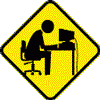Placement: Where is the best way to place the USB drive? Currently when I plug in the USB drive, I simply place it at the top of the desktop computer case. Is it alright?
anywhere that's physically safe (i.e. you won't drop the drive or spill something on it) is fine
Fan: Do I have to buy some external fans to cool down the USB drive? Is it necessary?
not usually....if the device were designed to need a fan it would have one....most external hard drives are not designed to be plugged in and on 24/7 so they don't have fans....if you're wanting an external drive that will be on 24/7 then you need to purchase one that is designed to do so.
Lockup: Is it normal that a system will hang or lock up if:
(A) we are trying to cut/copy/paste many files at once?
(B) there are many cut/copy/paste operations are active at one time?
© copying/moving a large file (e.g. several GB large)
(D) the USB drive is running too long?
these all depend on the drive in question...it's health....actual usage...system configuration...how you're holding your mouth when you're transferring...where the moon is in it's phase...and god knows what else
GENERALLY if you're having transfer issues with an external hard drive...especially when it's involving large files....it can be attributed to a power issue....if the drive is USB powered (i.e. the only cord going in or out is the USB cable) then your USB ports may not be supplying enough power to the device...GENERALLY front USB ports on the case get less power (or less reliable power) from the PSU than rear ports... the two solutions for this would be to either get an external drive with it's own power source (preferred) or to get a powered USB hub
as for the "running too long"....if the drive is meant to be a really big USB thumb drive (usually any external drive that doesn't have it's own external power source is designed for periodic use instead of 24/7 use) and you leave it plugged in and on ALL day EVERY day...then this can happen as the drive isn't designed to be on 24/7
Legacy USB mode: Does "Legacy USB support" (in BIOS) has anything to do to affect the performance or stability of a USB drive? Should it be on or off?
shouldn't make a difference if it's a new USB drive...if it was made more than 4 years ago...i'd turn that setting on...but it being on with a new drive doesn't matter
Formatting: Is it safe to use Windows to format USB drive to NTFS, or should I use third-party tools? Will formatting by Windows cause instability problems like this?
this is pretty much what the windows formatting utility was designed to do...format external media... you can use third party utilities if you like...but i don't see a reason to when there's one built in... and the likely hood of using the windows formatting utility instead of the manufacturer's utility causing any crashing issues is slim.... the only time it's required to use a manufacturer's utility is when the drive is brand new out of the box and was shipped unformatted (rare these days)...at which point you have to use the manufacturer's program to initialize the drive
















 Sign In
Sign In Create Account
Create Account

